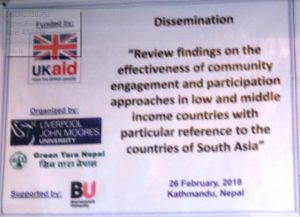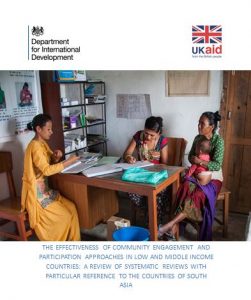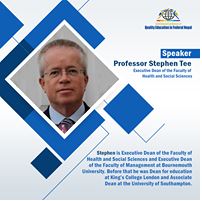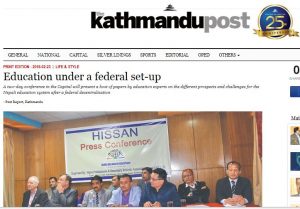It has been a busy week with the launch of the “major review of HE fees and funding” (except it may not be…) on Monday and a deluge of commentary and calls for change to follow. And other things happened too.
Major Review of HE
The much announced, long postponed HE “major” review is finally happening. And following the early start during last summer’s “national conversation” there is a lot to say – and it is being said. So we will try to help you navigate the many, many arguments and angles over the next year .
To start with the facts
- The review has been announced, it has a panel and terms of reference (these are very short and high level). There are links to the speeches and press releases on the gov.uk website. The PM’s speech is here: The right education for everyone
- The review will run for a year with an interim report (not sure when) – and will be concluded in early 2019.
Panel (from the website):
- Chaired by Philip Augar, a leading author and former non-executive director of the Department for Education
- Bev Robinson – Principal of Blackpool and The Fylde College. She has over 20 years’ experience in Further and Higher education colleges in England and has been Awarded an OBE for her services to FE.
- Edward Peck – Vice-Chancellor of Nottingham Trent University since August 2014. Previously, Professor Peck worked at the University of Birmingham as Director of the Health Services Management Centre and subsequently became Head of the School of Public Policy in 2006.
- Alison Wolf – (Baroness Wolf of Dulwich) a cross-bench peer in the House of Lords, and author of the influential Wolf Review of Vocational Education, published in 2011. She has advised the House of Commons select committee on education and skills as well as the OECD, the Ministries of Education of New Zealand, France and South Africa, and the European Commission among others.
- Sir Ivor Martin Crewe – Master of University College, Oxford and President of the Academy of Social Sciences. He is the former Chair of the 1994 Group and President of Universities UK.
- Jacqueline De Rojas – President of techUK and the chair of the Digital Leaders board. She also serves on the government’s Digital Economy Council and was awarded a CBE for Services to International Trade in Technology in the Queen’s New Year Honours list 2018.
The terms of reference
After that there is much less detail – it all becomes less about facts and more about politics. Firstly – the review is a DfE review not an independent review – the external panel is advisory – the website says:
- “The wide-ranging review will be informed by independent advice from an expert panel from across post 18 education, business and academia”.
There is a total absence of process in any of the materials published so far. So what will the process be? Will there be a consultation? Surely there will be – but this does not look like the sort of review that has led to major review in the past.
Then there is the timing. The review will run for a year with an interim report at some point– and will be concluded in early 2019. Which, as has been pointed out, coincides with Brexit (we are due to leave and start the “transition” period on 29th March 2019) – and has also been pointed out, may coincide with a leadership change or a general election in the UK – depending on how things are going with Brexit including how things go with the parliamentary “meaningful vote” on Brexit.
The Minister for Universities was very open on this subject the question of timing early after his appointment (see our policy update from 2nd Feb)– he said it would not be “credible” to expect changes before the 2018/19 intake. On the announced timing, the changes may not be in time to take effect before the 2019/20 intake either – although less significant changes to the current system, such as interest rates, repayment thresholds, small changes to fee caps, would be possible. If maintenance grants are part of the change they could be in place for 2019/20 entry although they may not affect access that year as most students will already have applied or made other plans – unless plans are trailed very heavily in the interim report and clear indication is given that they will be in place. But we are leaping ahead.
After much discussion about the need to review funding for Further Education as well, and people talking about a post-16 review, the terms of reference call it a “Review of Post-18 Education and Funding”. So it does apply to FE but only applies to post-18 provision.
So it is a major review of fees and funding?
The title is important – it is a review of “Education and Funding”. The speech and the terms of reference were revealing – at least as it has been announced, this is not primarily a review of tuition fees and university funding. What it is (from the terms of reference) is “a major review across post-18 education and funding to ensure a joined up system that works for everyone”.
- It’s a review of the “system”.
- Its objectives are:
- accessibility of the education system
- a funding system that “provides value for money and works for students and taxpayers”
- choice and competition
- skills development
But isn’t this already happening anyway?
So the review is about choice, competition, flexible provision, accelerated degrees, degree apprenticeships, technical education. We already have:
- the changes put in place by the Higher Education and Research Act
- the arrangements for the Office for Students and new regulatory system to promote choice and accessibility
- a new regime for alternative providers
- an consultation on accelerated degrees which has just closed
- arrangements for degree apprenticeships and Institutes of Technology
- a plan for better careers advice (see our policy update from 8th December)
The two areas that have not been addressed by existing initiative are part-time and life-time education.
Might the review therefore make new recommendations to take these initiatives and priorities forward?
In her speech the PM said:
- “This is a review which, for the first time, looks at the whole post-18 education sector in the round, breaking down false boundaries between further and higher education, so we can create a system which is truly joined-up. Universities – many of which provide technical as well as academic courses – will be considered alongside colleges, Institutes of Technology and apprenticeship providers. There are huge success stories to be found right across the sector, at every level, and by taking a broad view, Philip and his expert panel will be able to make recommendations which help the sector to be even better in the future.”
So it seems not. It is about “joining up” and “breaking down false barriers between further and higher education”. What does that mean? Changing admissions policies after recent press relating to BTECs? (see a recent HEFCE publication here), doing something to support pathways from FE to HE. From the terms of reference it seems to be about transparency and choice for students in relation to funding.
That’s really interesting. Degree apprentices not only don’t pay (or borrow) tuition fees, but they also receive a salary while completing their apprenticeship. That will be a real incentive and as more apprenticeships become available over time is likely to have an impact on enrolments for traditional degrees. So is this just about making sure that more students realise the financial implications of apprenticeships?
Or is this something different – is this hinting at having one single system of funding for all post-18 education at whatever level? If based on loans, that would reduce the value of the current apprenticeship offer – and it would not help with recruitment to achieve the government’s target. But there could be – the government is piloting a flexible lifetime learning fund.
It is interesting that the two quotes alongside the PM’s on the website are from the CBI and David Hughes, Chief Executive of the Association of Colleges, who said:
- “I am very pleased that the Review is looking at the whole system of post-18 education funding. The growth in higher education numbers and the widened access has almost exclusively been for young people taking traditional 3 year undergraduate degrees. That is good news for our economy and for society, and must not be damaged going forward.
- However, that very growth has been at the expense of adequate and fair investment in the 50% of young people who leave education at 18 and who want to study to higher levels later. Their opportunities have been hampered because of the lack of attention, leading to fewer chances, less funding and a lack of support for them to learn whilst working.”
It will be interesting to see what questions the review starts to ask and where this goes.
It’s all about skills
Consistent with the Industrial Strategy, the term of reference talk about skills. The Industrial Strategy has a focus on skills which is supported by a whole raft of educational policies, some before 18, such as the new T-levels, and some mentioned already, such as Institutes of Technology and degree apprenticeships. This is another area where it will be interesting to see what more the review will do beyond the policies already announced. After all, Baroness Wolf was the author of the review on vocational education for 16-19 year olds.
Of course, there is also the potential link between skills and differentiated fees or funding (see below).
It’s about fairness and access
The first point is about access, progression and success for people from disadvantaged backgrounds – a consistent theme from the PM since her appointment – the “great meritocracy” and a focus on social mobility. This is enshrined in the rules of engagement for the Office for Students, and we are eagerly awaiting the first set of guidance from the Office for Students on the next round of fair access agreements. So the review might look at how this is going and what more could be done – although it seems a bit early as this the first opportunity the OfS will have had since taking over.
The second point is very important. You won’t have missed the many calls from students, the NUS, UUK and others to remember that tuition fees are not the whole story – and that day to day, the real worry for many students is their living costs.
- Unlike tuition fees, which for undergraduate students are covered in full by loans paid directly to universities, so that they never see the money or the bill until much later, concerns about maintenance costs directly affect students while they are at university.
- Maintenance loans are means tested based on family income. They therefore fluctuate each year, leaving parents to make up the difference. Not all parents are able, or willing to do that, especially when the assessment depends on last year’s income – which may have changed.
- The cost of living for students can be extremely high, especially in London, but also depending on the available accommodation – so even students with a full loans are unlikely in many cases to have enough money to cover all their living expenses.
- Students may have to work to support themselves, which can have an impact on their studies.
- There are concerns about the impact that this pressure has on the wellbeing and mental health of students.
So many have called , not least UUK, to look at a reintroduction of maintenance grants for disadvantaged students. Could this be the big change that this review will recommend?
Before anyone gets carried away, though, the terms of reference refer to support from the government and from universities and colleges. Is this a reference to the question of bursaries – OFFA have for a long time questioned the effectiveness of bursaries in supporting access and with the new focus on participation and outcomes this area may now be looked at again.
According to OFFA, in 2015/16, universities spent:
- £447.5 million on financial support, of which:
- £428.8 million on bursaries, scholarships and fee waivers (discounts) for lower income students and other under-represented groups. The vast majority of this money (87 per cent) went to the poorest students i.e. those with a household income under £25,000
- £18.7 million on hardship funds for students experiencing severe financial difficulties.
Could universities be directed to increase bursary funding (and presumably not reduce other fair access expenditure)? That seems unlikely given the OFFA view that bursaries don’t necessarily improve access – OFFA have recently challenged institutions to collect evidence about impact. Maybe there are different ways of organising bursaries.
There are already concerns expressed in the new regulatory framework about universities gaming the system to improve outcomes by cutting back on WP students but the conflict would be even greater if universities have to fund maintenance costs for WP students. So universities may be calling for incentives and support if the funding is to come from them and not in the form of grants.
So it’s about fees and funding?
So while we have said above that the review is about the system, about skills and about social mobility, of course fees and funding are at the heart of the review. Aren’t they?
What the PM said was:
- “But the review will also look more widely, and examine our whole system of student funding. There are many aspects of the current system which work well. Universities in England are now better funded than they have been for a generation. And sharing the cost of university between taxpayers as a whole and the graduates who directly benefit from university study is a fair principle. It has enabled us to lift the cap on the number of places – which was in effect a cap on aspiration – so universities can expand and so broaden access.
- But I know that other aspects of the system are a cause for serious concern – not just for students themselves, but parents and grandparents too. This is a concern which I share. The competitive market between universities which the system of variable tuition fees envisaged has simply not emerged. All but a handful of universities charge the maximum possible fees for undergraduate courses.
- Three-year courses remain the norm.
- And the level of fees charged do not relate to the cost or quality of the course. We now have one of the most expensive systems of university tuition in the world. We have already begun to take action to address some of these concerns. We scrapped the increase in fees that was due this year, and we have increased the amount graduates can earn before they start repaying their fees to £25,000.
- The review will now look at the whole question of how students and graduates contribute to the cost of their studies including the level, terms and duration of their contribution. Our goal is a funding system which provides value for money for graduates and taxpayers, so the principle that students as well as taxpayers should contribute to the cost of their studies is an important one. I believe – as do most people, including students – that those who benefit directly from higher education should contribute directly towards the cost of it. That is only fair.
- The alternative – shifting the whole burden of university tuition onto the shoulders of taxpayers as a whole – would have three consequences.
- First, it would inevitably mean tax increases for the majority of people who did not go to university, and who on average earn less than those who did.
- Second, it would mean our universities competing with schools and hospitals for scarce resources, which in the past meant they lost out, putting their international pre-eminence at risk.
- And third, it would mean the necessary re-introduction of a cap on numbers, with the Treasury regulating the number of places an institution could offer, and preventing the expansion which has driven wider access in recent years.
- That is not my idea of a fair or progressive system.”
So no major review of the funding system, then. Instead it will look at “the whole question of how students and graduates contribute to the cost of their studies including the level, terms and duration of their contribution”. That’s not a shift away from loans to government funding of HE although it may be a shift towards renaming and changing the current system as a graduate tax of some form. It suggests a review of interest rates, and of the 30 year repayment term. Many will argue that this is not the “whole question” at all. And of course the review may be faced with overwhelming evidence that there is more to the issue than this, despite the assumptions made at the start.
And the Prime Minister herself chose to describe the system as broken:
- “…we must have an education system at all levels which serves the needs of every child. And if we consider the experience which many young people have of our system as it is, it is clear that we do not have such a system today.”
This is a direct response to the argument that young people turned to Labour partly as a result of the Labour position on fees – see my blog for the Lighthouse group on this. More recent research has questioned whether young people really did turn out in force after all.
It is worth mentioning here that the idea that the PM has just realised that tuition fees are high is odd – but apart from the point that this is a result of her own party’s policy in the coalition government there is a real point here – i.e. that nearly all courses cost the same. Many of those involved in the changes to tuition fees – including David Willetts, have said that was not what was expected. I have heard, but have not seen any analysis, that although fees generally replaced HEFCE funding (so no windfall), there was an uplift in university income because the modelling did not assume that the full amount would be charged for all courses. Of course the change in the student number cap has meant an increase in income as well – but with associated costs.
The news over the weekend was all about differentiated fees. There is nothing about that as an outcome in the terms of reference. They do however refer to the problems that might drive the review towards differentiated fees
- the fact that most universities charge maximum fees for their courses (implication is that this may not be value for money – but the value for money section doesn’t refer to it
- the fact that graduate debt has increased but salaries haven’t
- the issues raised by the PM in her speech “…the level of fees charged do not relate to the cost or quality of the course”.
There are various ways that fees could be differentiated, on cost, on quality, on outcomes, or by having differentiated fees for different groups of students, different fees for course that support the skills agenda, for example, or a combination of all of them. Read some of our earlier analysis of this in my blog for the Lighthouse Group in October. See what students think about this idea in the section about the HEPI report below.
We’ll be watching and reporting on the next steps and the main ideas raised be commentators over the next months.
Differential tuition fees
Talk of differential tuition fees has been constant over the last year and as described above this is a likely feature of the review. The Higher Education Policy Institute (HEPI) have responded by publishing a report Differential tuition fees: Horses for courses? summarising the debate and results from a relevant student survey.
Here are excerpts from HEPI’s briefing on the report’s contents:
- around two-thirds of students (63%) think full-time undergraduate courses should all have the same fees while one-in-three disagree (33%)
- when asked to state a preference, students prefer higher fees for ‘courses that cost more to teach’ (57%) than ‘courses that lead to higher earnings’ (17%) or ‘courses at more famous universities’ (7%)
- when questioned about the possibility of introducing higher fees for some subjects, more than half of students (52%) say higher fees might be justified for Medicine but just 7% think they could be justified for Arts (such as History or English) and only 6% for Modern Languages
- when questioned about the possibility of introducing lower fees for some subjects, 39% say lower fees might be justified for Arts (such as History or English), but just 9% think they could be justified for Law and only 8% for Physics
- most students (59 per cent) oppose lower fees for poorer students, although a substantial minority (38 per cent) back the idea
The survey was conducted using YouthSight’s Student Omnibus survey, which is the UK’s largest panel of young people, and there were 1,019 full-time undergraduate respondents. Quotas were set on gender, university type and year of study and weights were applied to ensure a balanced sample. Respondents received a £1 Amazon gift voucher
There is a lack of consensus among those who favour greater differentiation in fees for undergraduate students:
- some want lower fees for science and engineering courses;
- some want lower fees for disadvantaged students;
- some want lower fees for less prestigious universities;
- some want lower fees for courses that tend to deliver poorer outcomes;
- some want lower fees for courses that tend to deliver higher earnings;
- some want lower fees for less intensive courses; and
- some want a free for all with no fee caps.
The possibility of introducing greater price differentiation for undergraduate degrees has been under discussion for at least 20 years, since the Dearing report appeared in 1997. Variable fees for undergraduates were the most controversial aspect of Tony Blair’s Higher Education Act (2004), the main recommendation of the Browne review (2010) and promised by the Coalition.
Nick Hillman, Director of HEPI, said:
- ‘Different degrees are already meant to cost different amounts but, in England, fees have bunched up at the maximum price of £9,250 a year. Moving to a system of truly differential fees has many influential supporters. Some people seem to think having different fees for different degrees is inevitable. But the supporters of differential fees are deeply split on who should pay less and who should pay more, while most students reject the whole idea. At first glance, differential fees appear to have some advantages. It seems they could help poorer students, send signals about the value of different courses or help satisfy labour market needs. But, on closer inspection, these benefits prove to be largely illusory. Students are not price sensitive when choosing courses and differential fees are not even guaranteed to bring extra resources to universities. There are sound reasons why course fees have bunched at the level of the current fee cap. In opposing differential fees, students appear – yet again – to understand the logic of the current funding system better than many of its critics. It is vital the Government’s funding review takes the whole picture in to account.’
Treasury Committee Student Loan Review
Before the major review of HE was announced the Treasury Committee published the outcome report of its review into student loans.
- The report found no justification for student loan interest rates to be above the market or inflation rate and called for the Government to ditch the ‘flawed’ RPI method of interest calculation.
- It criticised the accumulation of loan interest pre-graduation.
- The committee concluded that reducing tuition fees would be regressive (only the highest earning graduates benefit and university funding would reduce).
- The report criticised the replacement of grants with maintenance loans inferring the government was creating additional barriers for the very students they were trying to encourage to attend University.
- A fundamental rethink of part time funding should take place
- Sharia-compliant student loans should be introduced as soon as possible
- Simplify the system to ensure that student finance is better communicated
- The report recommended the Government consider transferring responsibility for loans away from the Student Loans Company to HMRC.
Reported in Research Professional the Treasury Committee said:
- …it welcomes the planned major review of student financing and university funding, initially announced in October 2017. However, it said it hoped that the universities and science minister Sam Gyimah would keep more of an “open mind” than his predecessor Jo Johnson, who “regrettably” ruled out radical change to the system through the review.
Knowledge Exchange Framework (KEF)
Read John Vinney’s blog KEF: the missing HE accountability link, or an unnecessary distraction? published by Wonkhe. The blog considers how a discipline level KEF with a wider set of benchmarked metrics supplemented by qualitative assessment would benefit the sector. It calls for Government to reconsider the limitations of the current KEF proposals:
- One of the often-repeated strengths of the REF is that it allows excellence to be highlighted and celebrated (and funded) wherever it is found. The KEF could do the same for knowledge exchange. But not without a much broader view of knowledge exchange, and a much wider, more meaningful, and fairer assessment. The definition phase for the KEF seems to have been skipped in a rush towards more metrics – we hope that it will be reconsidered.
Widening Participation
A parliamentary question focussed on low household income applicants:
Q – Dan Carden: To ask the Secretary of State for Education, what steps his Department is taking to increase the number of people from lower socio-economic backgrounds applying to university.
A – Sam Gyimah:
- Widening participation is a central priority for this government….The independent Office for Fair Access, led by the Director of Fair Access (DfA), is the regulator currently responsible for widening access to higher education (HE) in England (a function that will soon transfer to the Office for Students). HE providers wishing to charge tuition fees above the basic fee level must have an Access Agreement, setting out their targets and planned expenditure to improve access for disadvantaged and under-represented groups, and approved by the DfA.
- The department is introducing sweeping reforms through legislation. The Office for Students (OfS) will have a statutory duty to promote equality of opportunity, across the whole lifecycle for disadvantaged students, not just access. As a result, widening access and participation will be at the core of the OfS’ functions. The department’s reforms will introduce a Transparency Duty requiring HE providers to publish application, offer, acceptance, dropout and attainment rates of students by ethnicity, gender and socio-economic background. This will help to hold the sector to account for their record on access and retention of students from lower socio-economic backgrounds.
Consultations
Click here to view the updated consultation tracker. Email us on policy@bournemouth.ac.uk if you’d like to contribute to any of the current consultations.
Subscribe!
To subscribe to the weekly policy update simply email policy@bournemouth.ac.uk
JANE FORSTER | SARAH CARTER
Policy Advisor Policy & Public Affairs Officer
Follow: @PolicyBU on Twitter | policy@bournemouth.ac.uk















 – I would ask. The girls would start laughing: “Ah it’s too complicated.” “Is it about love?” – I continued. “Yes!”- they’d reply and laugh even harder.
– I would ask. The girls would start laughing: “Ah it’s too complicated.” “Is it about love?” – I continued. “Yes!”- they’d reply and laugh even harder.













 Connecting Research with Practice: FoodMAPP Secondment in Austria and France
Connecting Research with Practice: FoodMAPP Secondment in Austria and France Health promotion paper read 8,000 times
Health promotion paper read 8,000 times The Beautiful Work Challenge: On Birth
The Beautiful Work Challenge: On Birth Free event on Solutions to Inequalities in Dementia Diagnosis and Care
Free event on Solutions to Inequalities in Dementia Diagnosis and Care MSCA Postdoctoral Fellowships 2025 Call
MSCA Postdoctoral Fellowships 2025 Call ERC Advanced Grant 2025 Webinar
ERC Advanced Grant 2025 Webinar Horizon Europe Work Programme 2025 Published
Horizon Europe Work Programme 2025 Published Horizon Europe 2025 Work Programme pre-Published
Horizon Europe 2025 Work Programme pre-Published Update on UKRO services
Update on UKRO services European research project exploring use of ‘virtual twins’ to better manage metabolic associated fatty liver disease
European research project exploring use of ‘virtual twins’ to better manage metabolic associated fatty liver disease